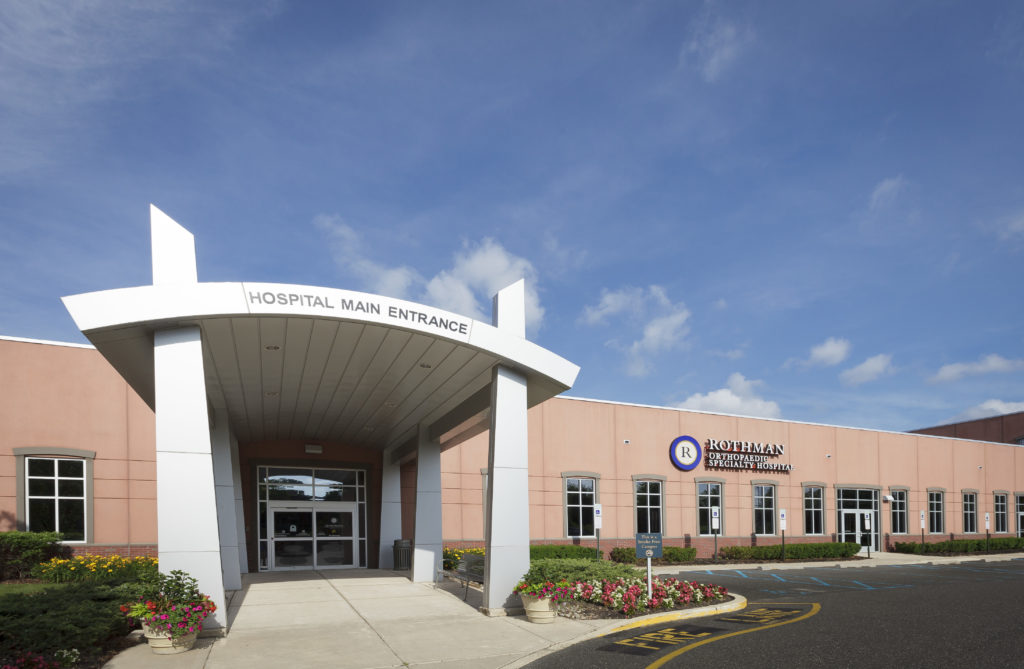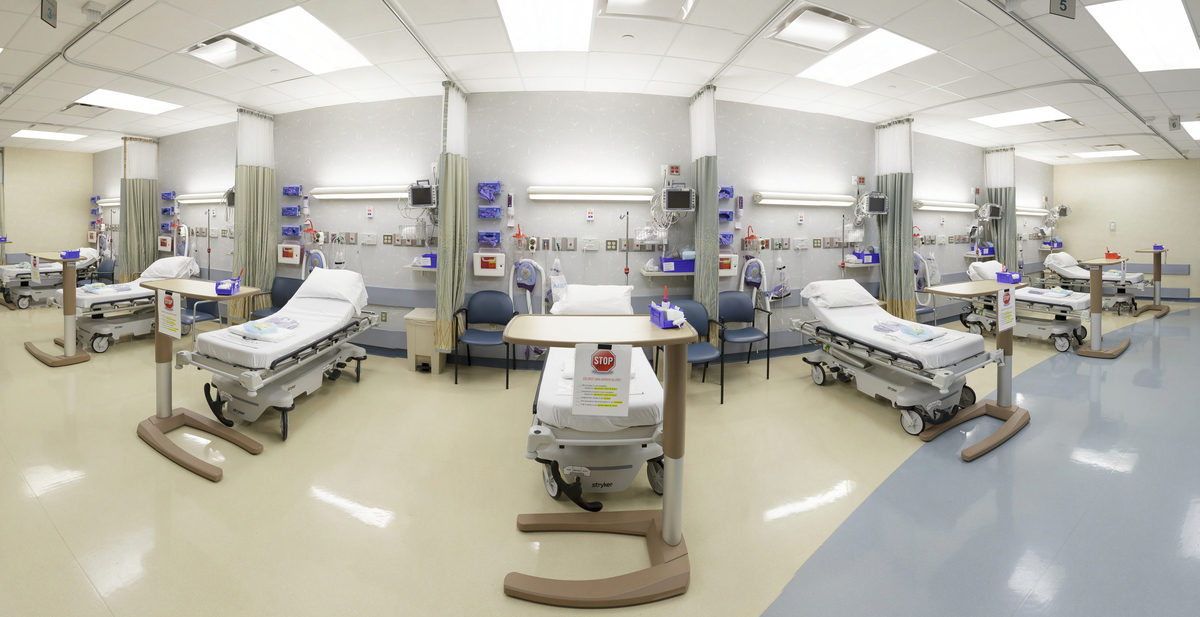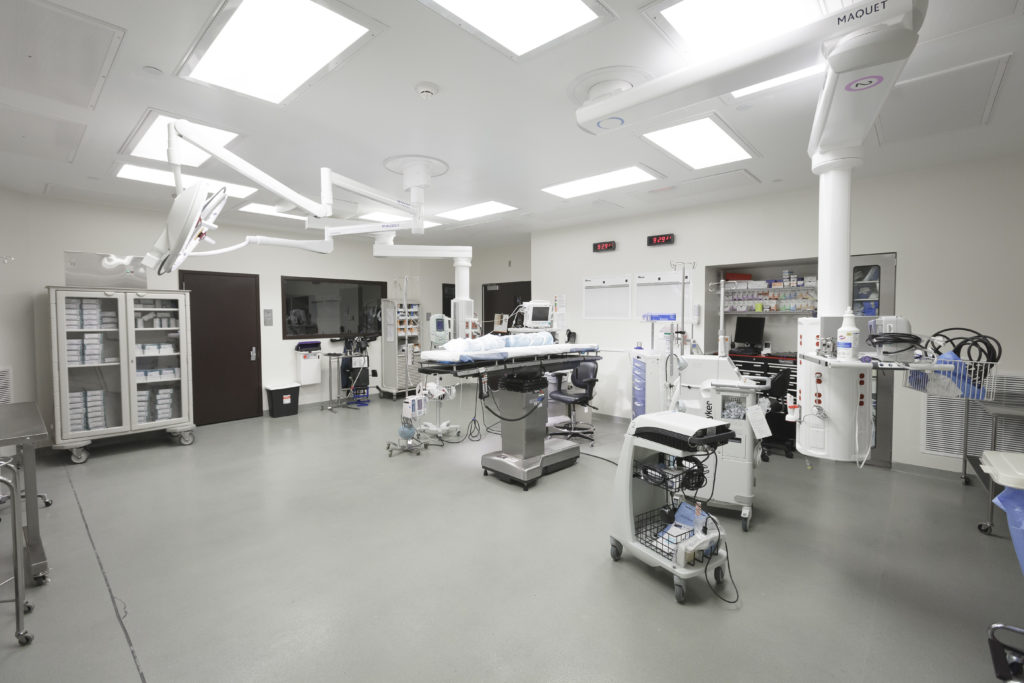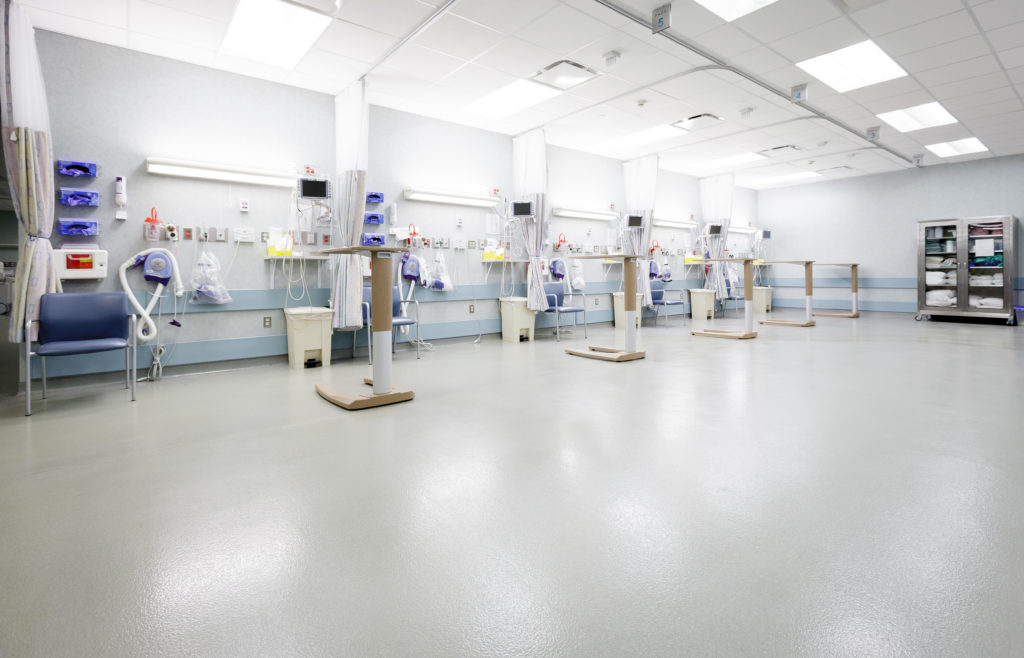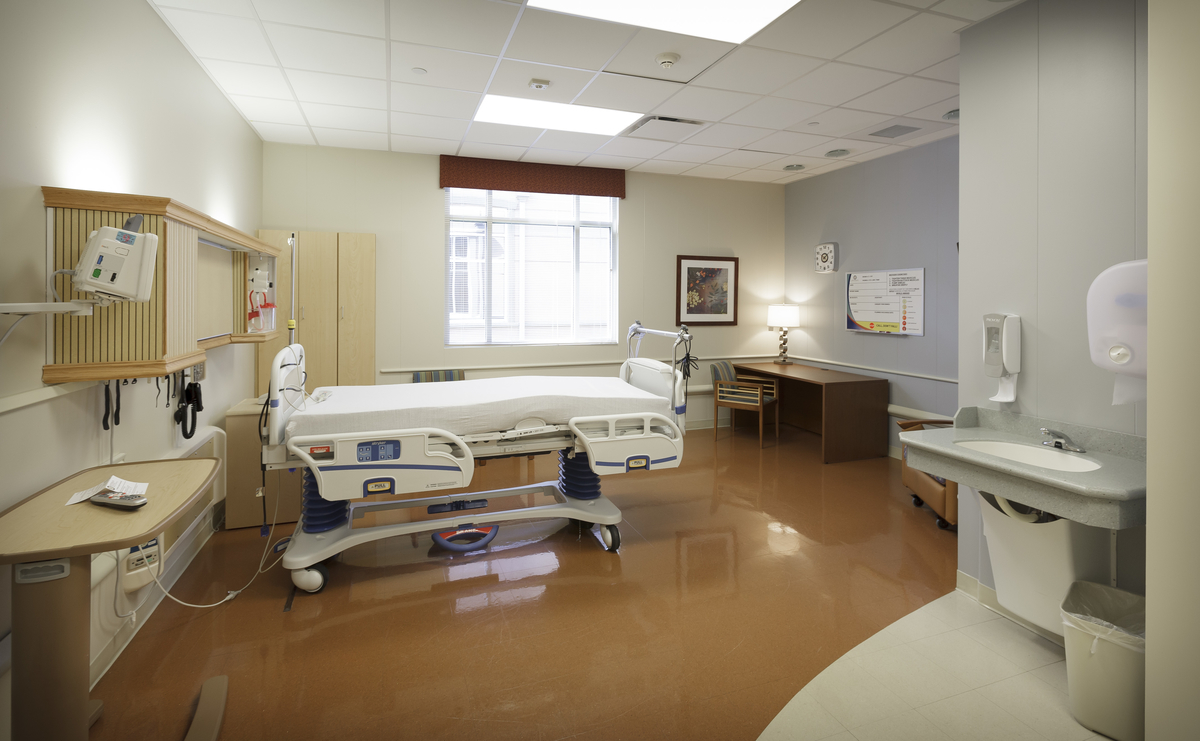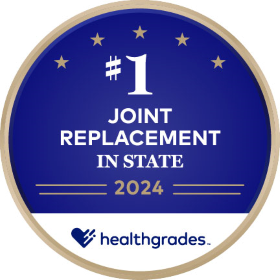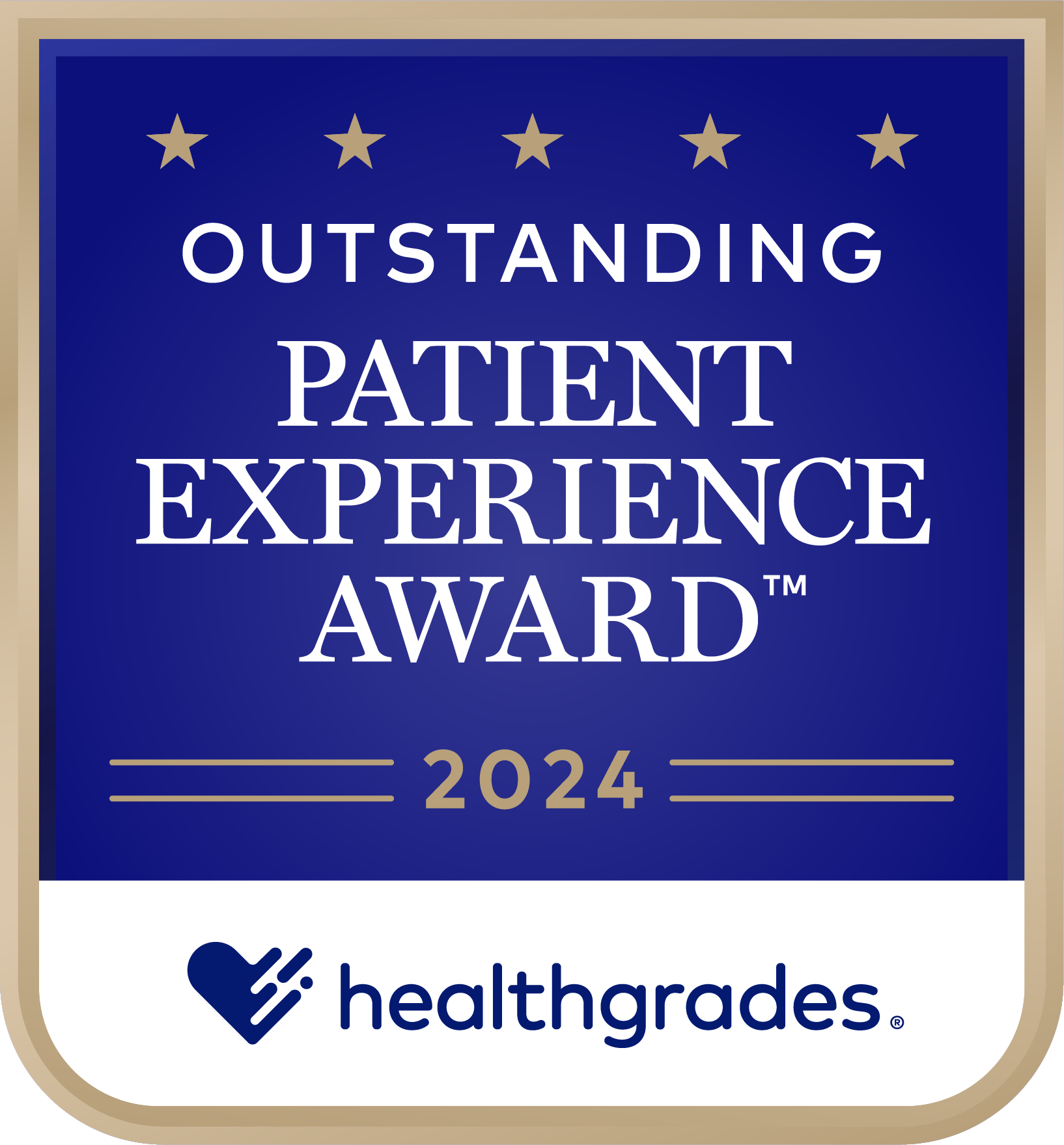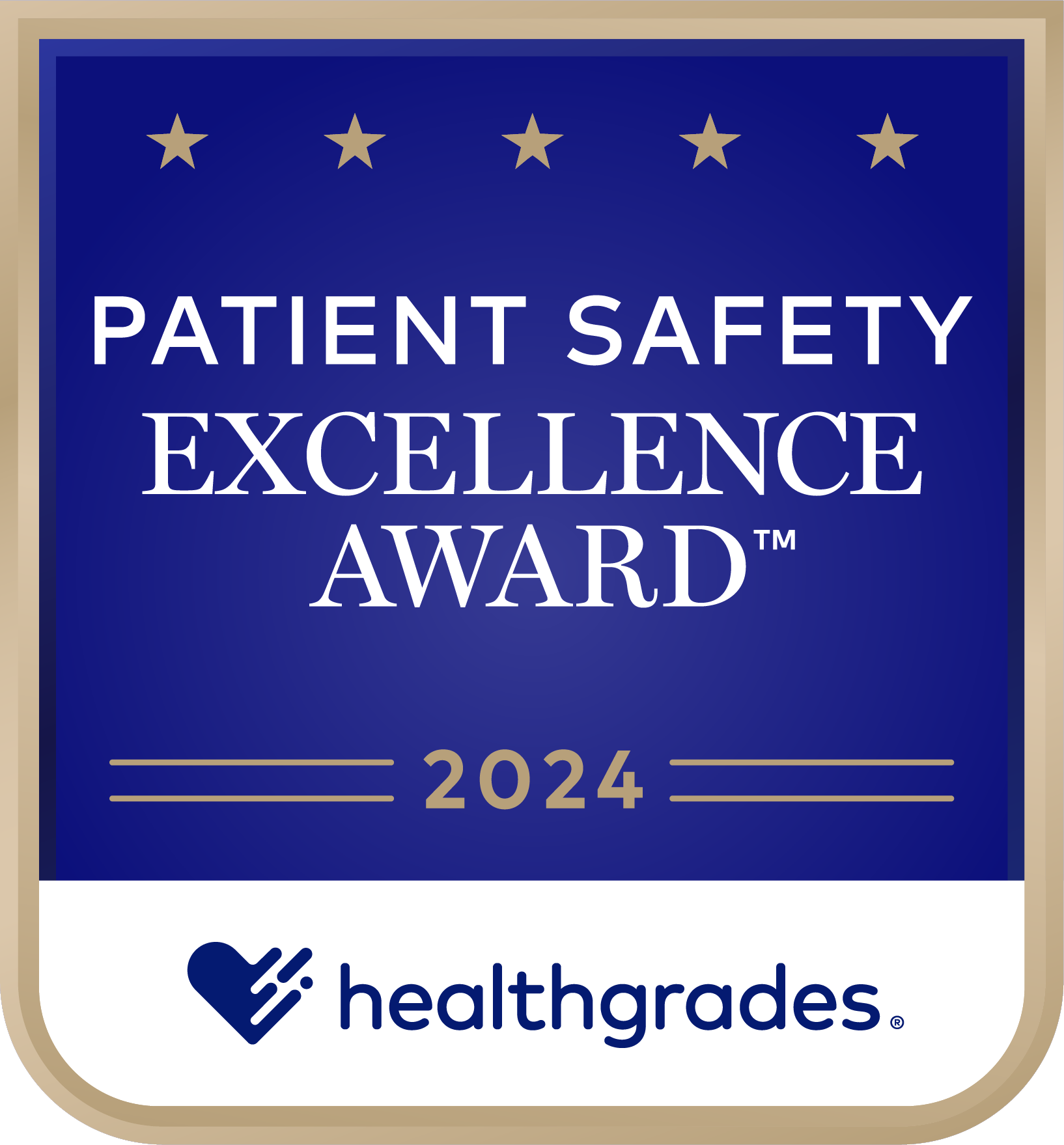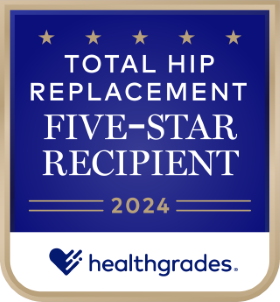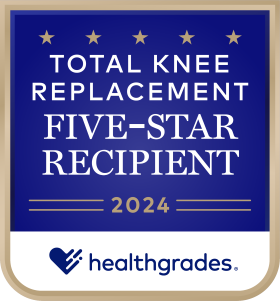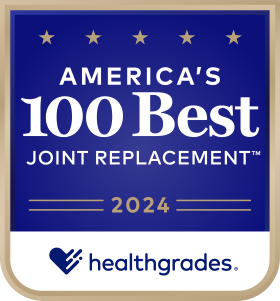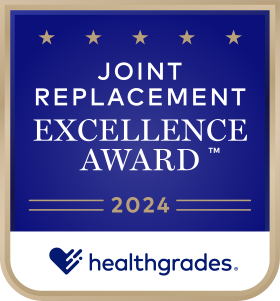When surgery becomes necessary, your Rothman Orthopaedist will discuss surgical locations that best fit your needs. If Rothman Orthopaedic Specialty Hospital is agreed upon, typically two appointments will be set, one for Pre-Admission Testing and another for your surgery. Ideally these two appointments are set several weeks apart to allow for the scheduling of any additional consultations that may be required such as pulmonology and cardiology. This screening process is important in the identification of existing or potential physiological conditions that may need to be considered by your anesthesia provider and surgeon. Conditions may be identified that must be resolved prior to surgery that could possible delay surgery.
Pre-Admission Testing (P.A.T.)
Pre-Admission Testing allows our medical team the opportunity to gather critical information about your medical and surgical history while providing you with important instructions on how to prepare for your upcoming surgery or procedure. Our goal is safe surgery with no surprises, no complications and no need for a readmission.
When your surgery has been scheduled, our Pre-Admission Testing (P.A.T.) scheduler will explain how to use our Patient Portal to complete your health history questionnaire. Before your appointment, a P.A.T. nurse will follow up with a call to review your health history.
It is important that you provide the following information prior to your pre-admit testing visit:
- Active medications list
- Primary care physician, Cardiologist, Pulmonologist, & Hematologist
- List of any allergies, past medical history and previous surgeries
In preparation for your P.A.T. visit, please remember to bring the following documentation:
- Insurance ID card(s)
- Driver’s license or government-issued photo identification
- List of current medications in their original packaging (including vitamins & herbal products)
- Copy of any EKG completed in the past six (6) months (EKG may still be indicated)
A typical Pre-Admission Testing visit at Rothman will include a complete history and physical by our medical doctor and any diagnostic tests that he or she may order. These tests vary depending on your medical history and surgery but may include
- Vital signs (blood pressure, body temperature)
- Blood &/or urine testing
- Bladder scan
- Electrocardiogram (note that body lotions & powders interfere with ECG leads)
Due to the varied nature of each patient’s health, appointments can last as long as 2 hours.
Our medical doctor may order a consultation with a member of our anesthesia service for an evaluation of your airway and an explanation of the anesthetic planned for your surgery. Additionally, our medical doctor may order a cardiology consult if indicated. If you are already being followed by a cardiologist we may request that you schedule a surgical clearance visit with your cardiologist before surgery.
Pre-Admission Testing can be reached at 215-244-7437. Pre-Admission Testing is located on the second floor of the Medical Office Building. Please park in parking lot B. Our receptionist in the lobby will kindly provide directions to the department.
Insurance
A letter will be sent from our Business Office four days after your surgery is scheduled detailing the outcome of our verification of your insurance. This letter will include details about any co-pays and or deductibles you are responsible for. Business Office staff may also attempt to reach you by phone the week prior to your surgery.
Our Business Office can be reached at 215-244-7404.
Day Before Surgery
On the day prior to surgery, a hospital nurse will call to confirm your surgery and the time you should arrive, usually one to two hours prior. Our nurse will also provide guidance on the which medications (if any) you should take and at what time in relation to surgery. Do not consume any food or drink, including water, after midnight prior to surgery unless instructed to by our nurse. Our nurses are here to help you so please take this opportunity to clarify any questions or concerns you may have during this call.
Please remember to leave all valuables (purses, watches, jewelry) at home unless it is your intention to entrust these items to the person accompanying you to surgery.
Please prepare to bring all of your medications to the hospital in their original prescription bottles, not a daily pillbox. Hospital caregivers are required to reconcile your daily medications ordered by physicians outside of this hospital.
A member of our nursing team can be reached at 215-244-7515.
Day of Surgery: Registration
We recognize that most of our patients will arrive at the hospital with a healthy amount of anxiety. For this reason our hospital is staffed with compassionate, caring and experienced nurses who will take every effort to ensure your comfort.
Beyond our nurses responsibilities to you, we want to remind you of several very important things you must do to prevent undue stress the morning of surgery.
First, remember to bring all of your prescription medications in their original prescription bottles, not a daily pillbox.
Second, it is fine to bathe prior to your procedure, but limit the amount of hairspray, make-up, and body lotion applied.
Third, all patients must be accompanied by someone who will be responsible to provide transportation after surgery. Regretfully, your surgery will likely be cancelled if you arrive unaccompanied. Please note that the entrance to registration is on the one-story side of the hospital with a canopy that reads “Hospital Main Entrance.” Please avoid entering through the two-story medical office building as your walk to registration will be much longer.
Fourth, we encourage patients who wear contact lenses to wear glasses the morning of surgery. If this is not possible, please bring the supplies necessary to hold your contact lenses when they are removed.
Lastly, please be sure to bring proof of insurance and government issued photo identification for registration. Our kind and courteous registration staff will work with you to complete important documentation that includes Informed Consent, Patient Rights & Responsibilities and notice of HIPAA rights. All of these documents are available to read on this website by clicking here. Note that registration is not always first come, first serve – rather patients are registered according to the order of surgery set by the surgeon. Please be aware that duration of surgical cases prior to yours may cause prolonged wait time.
Day of Surgery: Pre-Operative Area
When ready, one of our nurses will escort you back to the pre-operative area. Upon arrival, our nurses will complete vital signs, place an IV and review important documentation to ensure you are fully informed and ready for surgery. Next, a member of the medical staff will review your medical history to be sure nothing has changed since your P.A.T. visit. If you were not required to visit P.A.T., a medical doctor will complete a history and physical. Our Anesthesia provider will also review your medical history so there may be some overlapping questions. Women of childbearing age should expect to do a urine pregnancy test prior to surgery.
Day of Surgery: Operating Room
Rothman Operating Room nurses and technicians are highly trained, focused and team oriented to support and assist your surgeon towards the goal of accomplishing your surgery safely and efficiently. Rothman surgeons leverage our experienced staff to accomplish your surgery quickly thus reducing the opportunities for infection and lessening the duration of anesthetic time.
After Surgery: PACU
Following surgery, you will be taken to our Post Anesthesia Recovery Unit (PACU) staffed by compassionate, highly trained registered nurses under the direction of our Anesthesiologist. Your recovery time may be an hour or longer, depending on the type of anesthetic used. You may be transferred to PACU phase two for extended recovery if additional time is needed.
Your surgeon expects that you will eat, drink, void, and have pain under control prior to discharge from PACU. You may be drowsy for the rest of the day; drowsiness is not usually an indicator you will need to remain at our facility. However, you will be kept longer if you are extremely drowsy or hard to arouse.
Patients ready to leave PACU will either be discharged to the care of the person providing transportation or transferred to our inpatient unit. Your surgeon determines which types of surgery require an inpatient stay.
Our PACU nurses will attempt to reach patients at home the day after surgery. If you have a question or concern please call our nursing team at 215-244-7515.
After Surgery: Inpatient
For patients scheduled to remain in the hospital overnight following surgery, we provide gowns and basic toiletry items.
Each spacious private room is equipped with a nurse call option, flat-screen television, complimentary phones and private bath. Our dedicated nurses and assistants conduct hourly rounds to ensure your comfort, and provide education and assistance. At shift change your nurses will discuss your status and needs at bedside allowing you the opportunity to be actively involved in your care.
Caring individuals from multiple disciplines may visit your room during your short stay:
- Your surgeon or another surgeon from the practice
- Hospitalist &/or Nurse Practitioner
- Your nurse(s) & Nurse Assistants
- Nurse Manager &/or Administrator
- Discharge Planner
- Dietary Services
- Physical Therapy
- Housekeeping
Our goal during your inpatient stay is to ensure you are ready for your home recovery. Our medical team will monitor your progress closely while providing you with the information you need to recover at home.
Once you are at home, our inpatient nurses will call to check on your progress. If you should have any questions about your recovery, you should contact the nurse navigator whose contact information is in your discharge packet.
Frequently Asked Questions
Will someone from the Specialty Hospital call me prior to my procedure?
Yes. You may receive multiple calls from our facility.
- A Pre-Admission Nurse will call prior to your Pre-admission’s appointment. They will conduct a review of your health history, plan about 15-20 minutes for this call.
- A biller from the business office will contact you to address financial matters regarding your procedure—insurance coverage, co-payments and deductibles. (This call applies only to the facility fee for surgery)
- A staff member will call you to tell you when & where you will be going for your COVID-19 testing.
Who do I contact if I have questions regarding my disability paperwork?
- If you will need to have disability paperwork (i.e. FMLA, short term disability) completed for your employer, please bring or mail the correct forms to your surgeon’s office prior to your surgery.
I have already provided my health history to the surgeon’s office. Why do I have to review my health history again with the P.A.T. nurse?
- The specialty hospital will receive an overview of your medical history information from the surgeon’s office before they call you to review your health history.
- During this call, we will ask some additional specific questions that better assist our anesthesia provider in planning your anesthesia care.
- Your safety is our top priority, so we want to make sure all of the information we have on file is up to date, accurate, and complete. This will also give you the opportunity to remember health information that you might have forgotten during your preoperative visit with the surgeon.
Are there any test required before my procedure?
- Your surgeon will give you an order for necessary testing to make sure you are healthy for surgery.
- This may include lab work, chest x-ray, and EKG. The pre-op lab work can be done at any hospital that is close to you.
- We would like for you to complete any testing 3-4 weeks prior to surgery if possible, in order to review and prevent any delays.
- Be sure to have your doctor’s office send all necessary paperwork regarding pre-operative tests and blood work to your surgeon.
- Your surgeon may also ask you to be seen by your primary care physician and or dentist to ensure that you are healthy enough for surgery.
What should I do if I notice a physical change in my condition leading up to surgery?
- Call your surgeon’s office if there are any changes to your well-being prior to your procedure.
- Signs/symptoms of cold or flu (fever, cough, sinus drainage, nausea, vomiting, diarrhea, etc.) should all be reported to your surgeon’s office right away.
- Scratches, bug bites, bruises, abrasions, rashes, blisters, etc. of the operative extremity should be reported to your surgeon’s office right away.
Will I get to speak to the person administering my anesthesia prior to surgery?
- Before surgery, you and your anesthesia provider will discuss your history and review the anesthesia plan; this is when you’ll be able to voice all of your questions and concerns.
- Make sure to communicate any anesthesia concerns you have during your pre-op call with our Nurse.
- If necessary, we may send you for an anesthesia consult, downstairs in the main hospital directly following your pre-admission testing appointment.
What medications should I stop/continue to take?
- During your pre-operative phone call, the nurse will create your medication list in your hospital chart.
- When coming to your P.A.T. appointment, please bring your medications in your original packaging.
- We will perform a medication reconciliation; the Physician will review your medication list during your visit. During this time, they will explain to you what medications to hold or continue. You will sign the medication sheet stating that you understand. Please ask questions at this time.
What can be done to reduce my risks post-procedure?
- Always clean your hands before and after caring for your wound.
- Carefully follow your doctor’s instructions regarding proper care of your surgical wound.
- Do not submerge your wound in water. Do not use ointments, creams, and powders on your wound unless instructed by your physician.
- Ensure you have clean sheets on your bed.
- Do not let pets lick your wound. Your pet’s mouth is not as clean as you think. Clean bites and scratches immediately with soap and water. Do not allow pets in your bed. Avoid pets around the incision area.
